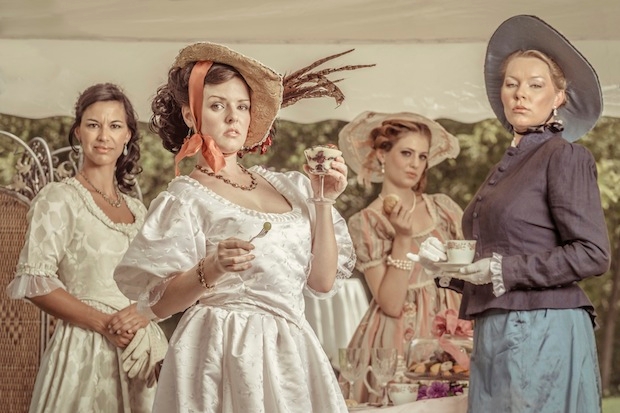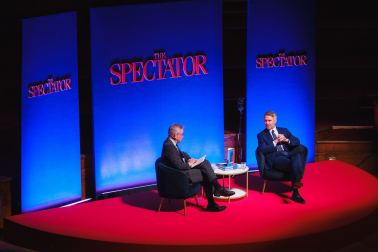I was having a nice telephone conversation with a friend the other day when I put my foot in it by suggesting that we might soon meet for a ‘meal’. ‘No,’ he said firmly. ‘Perhaps lunch or dinner?’ For a second I couldn’t think what he meant; but then it drifted back to me that there had once been a time — long, long ago — when I, too, might have been embarrassed by talk of a meal. For use of the word ‘meal’, clear and straightforward though it is, was thought ‘common’ or ‘non-U’ in those days, an indicator of social inferiority, though I cannot imagine why.
The terms ‘U’ and ‘non-U’ (‘U’ standing for ‘upper-class’) were coined in the 1950s by Professor Alan Ross, of Birmingham University’s linguistics department, but then made famous by Nancy Mitford in her essay ‘The English Aristocracy’, which included a glossary of words and phrases supposedly favoured by one class or the other. The ‘non-U’ words tended to be euphemistic and suggest middle-class aspirations to refinement, the ‘U’ words to be plain, direct and down-to-earth. But the whole thing felt suspiciously like an artificial construct by the upper class to boost its own sense of superiority and to protect it from infiltration by members of the class below.
I was brought up to believe myself more ‘U’ than ‘non-U’, but close enough to the latter to feel a degree of social unease and embarrassment at the use of ‘non-U’ words. (My mother didn’t help by describing our family as ‘upper middle-class’ or possibly ‘lower upper-class’, I can’t remember which.) But anyway, it’s quite different now. I am still easily embarrassed; not by people using ‘non-U’ expressions but, on the contrary, by people who still care about such things.








Comments
Join the debate for just £1 a month
Be part of the conversation with other Spectator readers by getting your first three months for £3.
UNLOCK ACCESS Just £1 a monthAlready a subscriber? Log in